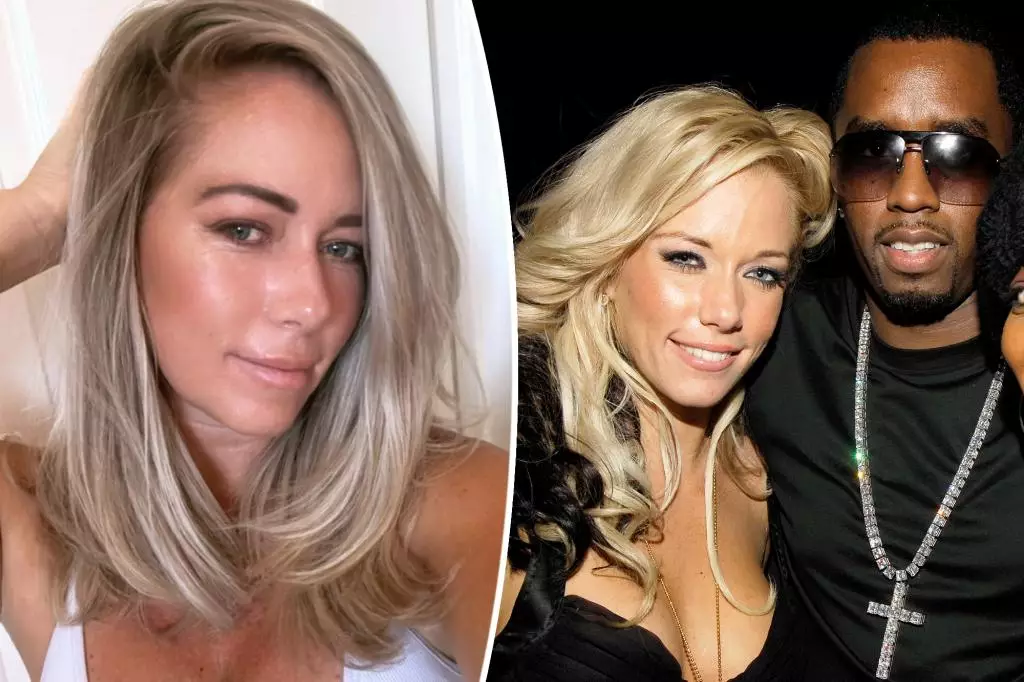The world of celebrity is often shrouded in glamour, excess, and a hedonistic lifestyle that captivates the public’s imagination. However, the recent legal troubles of Sean “Diddy” Combs shine a light on the darker undercurrents that can exist within such a milieu. Kendra Wilkinson, a well-known figure from the reality television landscape and former girlfriend of Hugh Hefner, recently discussed her experiences at Diddy’s notorious parties, providing a unique perspective amid serious allegations against the music mogul.
Wilkinson’s candid recount includes her youthful attendance at Diddy’s extravagant parties, which often attracted Hollywood’s elite. She confessed on “The Kylie & Jackie O Show” that while she enjoyed herself during these events, she never encountered troubling situations. “I remember just going to like one or two,” she stated, emphasizing that her experiences were largely positive. This sentiment, however innocent, raises questions about the entertainment industry’s culture and the potential desensitization to misdeeds that can occur in such an environment.
The issue at hand is not just a recount of past joys but a critique of an industry that allows troubling behaviors to flourish. Wilkinson’s assertion that “sex is sex” highlights a broader societal attitude toward promiscuity and consent, dramatically complicating the narrative surrounding Diddy’s alleged offenses. While she shares her personal enjoyment, the context that surrounds these parties—now implicated in sex trafficking and abuse—begins to paint a more complicated picture.
Importantly, Wilkinson maintains that although she is aware of the potential for misconduct at such gatherings, she personally did not suffer from any negative experiences herself. “I’m not saying that something bad didn’t happen,” she mentioned, hinting at a painful reality: her narrative exists in stark contrast to the harrowing experiences of others. This dichotomy can provoke a critical discussion regarding how social environments can foster inequality in experiences, where some revel in indulgence while others face violations of their autonomy.
Combs’ legal situation adds further nuance to the conversation. He faces serious charges, including sex trafficking and racketeering, culminating in an alarming indictment that claims he used coercion and violence to satisfy his desires. In an age where the balance of power often skews dramatically in favor of those with celebrity status, Wilkinson’s perspective forces a reflection on the silencing of voices that endure harm in such glamorous settings.
Following the investigation that unveiled Diddy’s illicit activities—described disturbingly as “Freak Offs”—his legal predicament has rapidly unraveled. The shocking discovery of over 1,000 bottles of baby oil within his properties, linked to wild parties involving drugs and alcohol, paints a portrait of an environment filled not only with excess but also significant risks. This raises the larger issue of accountability in cases where disregard for personal boundaries is alarmingly normalized, potentially creating an ecosystem ripe for exploitation.
Wilkinson’s experience and Diddy’s legal woes touch upon the broader implications of fame and the often unregulated behaviors of those within the upper echelons of society. The allure of celebrity life can overshadow grave issues of consent and ethics, leading to an unsettling acceptance of excessive behavior. As allegations mount against Combs, the fallout highlights the urgency of these discussions, provoking conversations regarding the responsibilities of those who curate such hypersexualized atmospheres and the accountability of attendees.
Kendra Wilkinson’s reflection on her past experiences amidst the backdrop of Diddy’s legal troubles serves as an important reminder of the complexities within the celebrity culture. While her personal enjoyment at such parties is valid, it coexists with stark realities that others face within the same environment. As society grapples with the implications of Diddy’s charges, there lies a greater need to examine the systems in place that allow these behaviors to thrive and to re-evaluate the narratives surrounding them.
The juxtaposition of personal narratives and the broader implications of fame presents an opportunity for dialogue about the industry’s ethics and the significant shifts needed to protect individuals from harm. In a landscape rife with contradictions, it is imperative to listen, learn, and strive toward a more equitable and conscious celebration of celebrity where consent and integrity prevail.


Leave a Reply